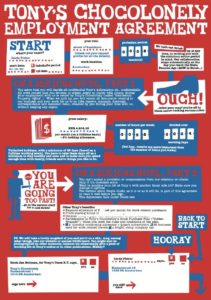A large percentage of employees in Australia are covered by modern awards or enterprise agreements (EA). So it’s a reasonable question: why do my employees need a contract of employment as well?
A quick reminder on the basics -awards and EAs
A modern award or enterprise agreement is an instrument that comes from the Fair Work Act. You don’t get to choose whether your employee is covered by one of these or not. Their coverage comes from being employed in an industry that has a modern award or in a role that is covered by a specific enterprise agreement. You can’t pay less than the award or the EA. You must also comply with the ten standards called the National Employment Standards.
Employment law in Australia being not simple, there are already a couple of exceptions to the above:
** Employees who are not covered by the Fair Work Act. So for example, an employee in WA who is covered by a State Award.
*** Employees who are not covered by an award or agreement; known as being award-free.
How do I know if my employee is covered by the Fair Work Act?
Most employees are. There are some specific exceptions however. You can check out whether your employees are covered by checking here.
How do I know whether my employee is covered by a modern award?
To find out whether your employee is covered by an award, you can click here.
If your employee is award or enterprise agreement free, you must still pay them the minimum wage ($19.84 per hour as at October 2020) and comply with the National Employment Standards.
So where do contracts fit into all this?
A contract of employment is a common law agreement. It is between an employer and an employee and it sets out the mutual expectations and obligations of each other.
It differs quite radically to an award or EA, in that they are considered to be the minimum conditions on which you can employ an employee. An award is usually about the core conditions of employment. An EA may have slightly more expectations and obligations built into it, depending on when and how it was negotiated.
A contract of employment goes further. It sets out what the expectations are of each party.
It’s important because it is more difficult to rely on these expectations being “agreed” if they get broken if there is no written contract.
There are also some quite specific provisions that require written agreement (such as being able to deduct monies from an employee’s pay).
A contract allows you to consider the specifics of your organisation and reach an agreement with your prospective employee. And allows you to have different arrangements with different employees.
Some objections
Common objections to having a contract include:
- It will scare my employees. (Make it non scary, written in plain English. Make sure you understand it, so you explain it).
- It’s too long, they won’t read it. (See the one pager above. It doesn’t need to be 20 pages long).
- I don’t want to be held to another agreement. (Ok – but then don’t assume you can hold your employees to it either).
- It’s too late – they are already employed. (Never too late!!)
- A contract can be implied by actions. (Yes, but it’s more tricky and often time consuming and expensive to do).
There is a way around all these objections. And if you check out the agreement at the start of this post, some of these work arounds are very cool.
THE TAKEAWAY
A contract protects both you as the employer, and the employee. It allows you to be specific about what you expect of your employee and what happens if it all goes wrong. It is a safety net for you both. It’s different to an award which is the minimum; and which you need to comply whether you want to or not.
WANT SOME MORE RESOURCES?
WANT MORE?
If the above has whetted your appetite, and you’re keen for more.. Here are some ideas:
Does leadership interest you? You can sign up to my FREE seven day “Be a Better Boss Challenge” by clicking here. And you can click here to buy my book.
Want to chat? Click here to get in touch.
Want some help in meeting your goals? Sign up to the permission to dream programme, by clicking here.
Want more to read? You can read any of the 300+ blog posts on this site, by clicking here.
See you soon,



